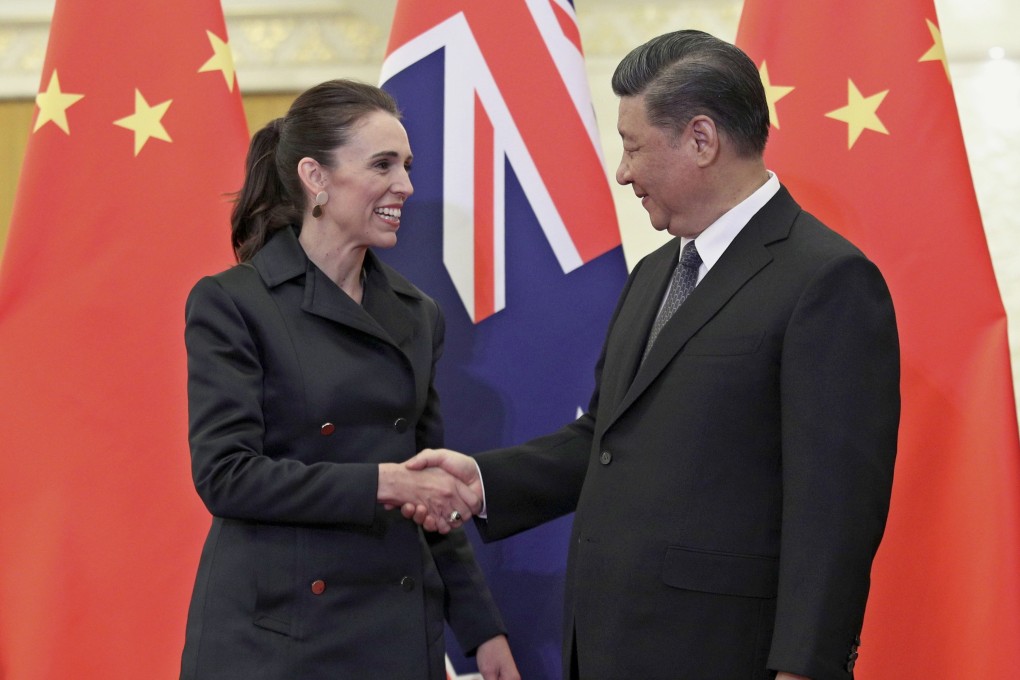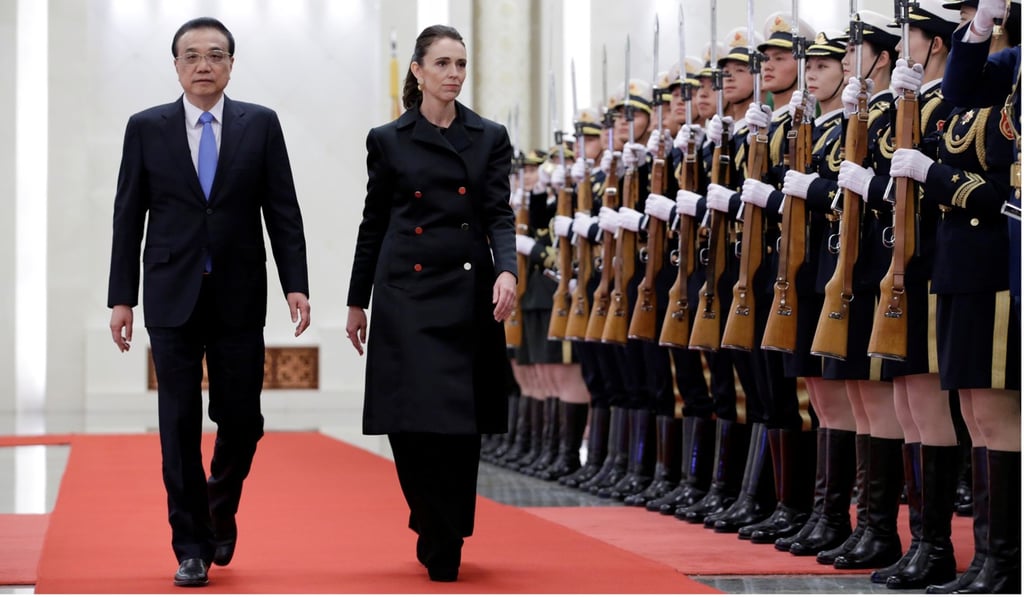Advertisement
New Zealand leader Jacinda Ardern talks trade and Huawei on whirlwind trip to China
- Chinese President Xi Jinping calls for the two countries to ‘hold on to the principle of mutual trust and mutual benefits’ in meeting
- Ardern and Premier Li Keqiang witness signing of cooperation agreements in agriculture, finance, science and tech and discuss upgrade of free-trade deal
Reading Time:3 minutes
Why you can trust SCMP

New Zealand Prime Minister Jacinda Ardern has emphasised the importance of strong ties with China during a whirlwind trip to Beijing, while Chinese President Xi Jinping called for “mutual trust” between the two countries.
Ardern met Xi at the Great Hall of the People on Monday, where she also had a meeting with Premier Li Keqiang during the brief visit – her first to China since she was elected prime minister in late 2017.
According to China’s state news agency Xinhua, Xi told Ardern that New Zealand had always been at the forefront among Western countries in establishing strong ties with China.
Advertisement
“China has always treated New Zealand as a sincere friend and a cooperation partner,” Xi was quoted as saying. “Currently, there are some new developments in the bilateral ties. Both sides need to hold on to the principle of mutual trust and mutual benefits to further advance our relations.”
Xi also called on New Zealand to actively participate in Beijing’s trade and infrastructure scheme, the “Belt and Road Initiative”, and sought cooperation on issues such as climate change and promoting sustainable development in the Pacific island nations.
Advertisement

Advertisement
Select Voice
Choose your listening speed
Get through articles 2x faster
1.25x
250 WPM
Slow
Average
Fast
1.25x